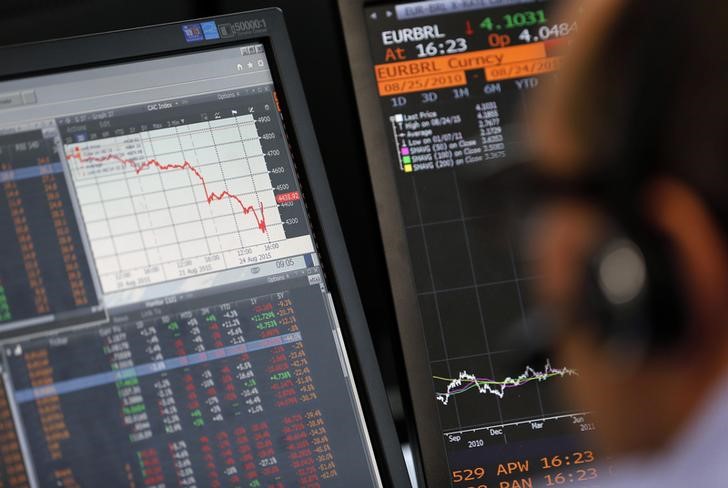(Bloomberg) -- An ETF that bets winning stocks will keep on winning has held up quite well amid the recent bout of market turbulence. One reason: it’s got many of the same traits of a popular low-volatility fund.
The iShares Edge MSCI USA Momentum Factor ETF, ticker MTUM, has a strong overlap with the minimum-volatility fund USMV, with both owning 68 of the same companies. That’s the biggest crossover between the two since at least January 2019, according to data compiled by Bloomberg Intelligence. Those stocks make up about three-quarters of the $9.6 billion momentum ETF.
It “looks more like a minimum-volatility ETF,” wrote Athanasios Psarofagis, an ETF analyst at Bloomberg Intelligence. Indeed, the correlation between MTUM and USMV is nearly one -- suggesting the two securities are trading in tandem.
MTUM has seen an increase in allocations toward utility and real-estate shares over the past year. Those industries are typically thought of as bond proxies that might hold up better during a market downturn. Meanwhile, the ETF has reduced its holdings of financial companies over the same period, Bloomberg data show.
Panicky investors have rushed for cover this month as the spreading coronavirus upends global growth prospects. With U.S. stocks undergoing one of their darkest stretches in years, many defensive plays have seen strong demand. A portfolio that goes long the highest momentum shares and shorts the lowest is the best-performing among a group tracked by Bloomberg, posting gains of about 17% year-to-date.
Meanwhile, a value one has seen losses of more than 17% over the same period. A measure of relative performance shows momentum at the strongest level versus value since 2009.
“It’s about safety,” said Steven DeSanctis, a research analyst at Jefferies LLC. “It tells you defensives have been extremely strong performers.”
To strategists at Nomura Instinet LLC led by Joseph Mezrich and Adam Gould, it’s partly a reflection of the low-rate environment. Momentum’s success is dependent in part on low-volatility’s outperformance, which itself is getting a boost from a collapse in rates, they wrote in a note dated March 9.
Starting around 2010, “low-volatility stocks have often offered dividend yields higher than the 10-year Treasury, giving these stocks a bond-proxy feature that has increased their appeal among income-seeking investors,” they wrote. “Because of this bond-proxy feature, when interest rates have fallen since 2010, low-volatility stocks have tended to outperform the market.”
That rings true for Jefferies’ DeSanctis, too. But he also says that when the market turns up, momentum strategies may suffer.
“At some point, there will be a shift,” he said. “The bond proxies are cluttering MTUM. When the market gets a little bit more aggressive, more economically-sensitive, they’re going to get left behind.”
